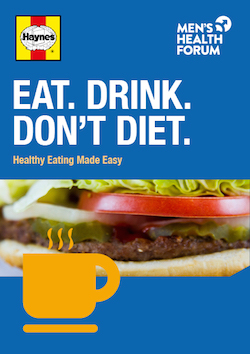A new study by the International Longevity Centre UK has analysed health information seeking behaviours across Europe and has found men are less likely to consult a GP or nurse. The Men’s Health Forum’s man manuals and Man MOT online chat service provide the solution.
The report published today, titled 'Next Generation Health Consumers' highlights the importance in understanding health information seeking behaviour (HISB). 
On gender, the ILC says: “Variations in HISB by gender may have important implications for the take-up of and extent of participation in preventive behaviours. Each gender may require specific approaches by health professionals and health information providers in order to ensure that males and females are equally well targeted and engaged...”
The ILC analysed a sample of 1,958 men and 2,224 women and found that:
- Men are less likely to visit a doctor or nurse after finding a lump
- Men are less likely to visit a doctor or nurse for details on staying healthy
- Women prefer face-to-face supply channels, such as pharmacists and paid carers
- Men prefer impersonal health information suppliers such as internet, the television or radio, and phone helplines
- 12.9% of men say that they would not want to get health information from any of the suggested sources
This report follows the Men’s Health Forum’s Men’s Health Manifesto which calls for tailored health awareness and literacy.
The Men’s Health Forum’s man manuals provide male friendly health information helping to increase the health literacy. Man MOT the Men’s Health Forun’s online chat to a GP service which is a free and confidential online health information service.
More information:
